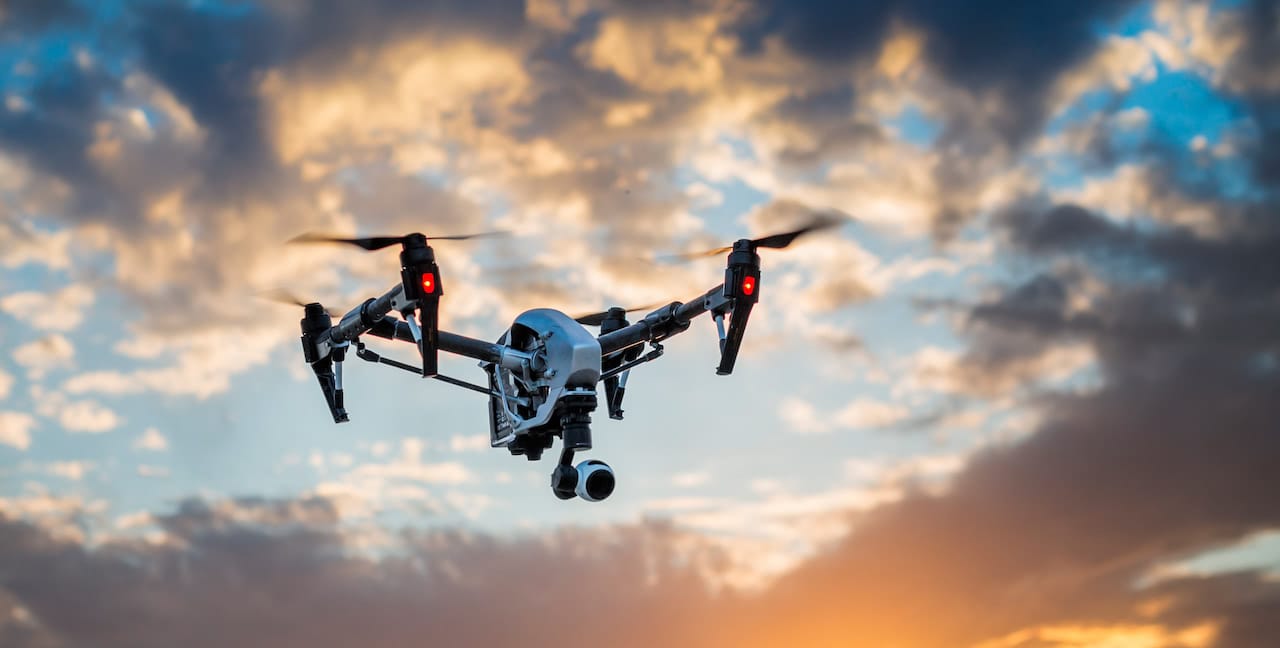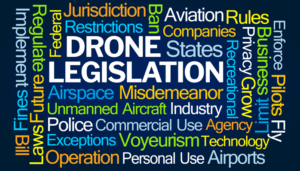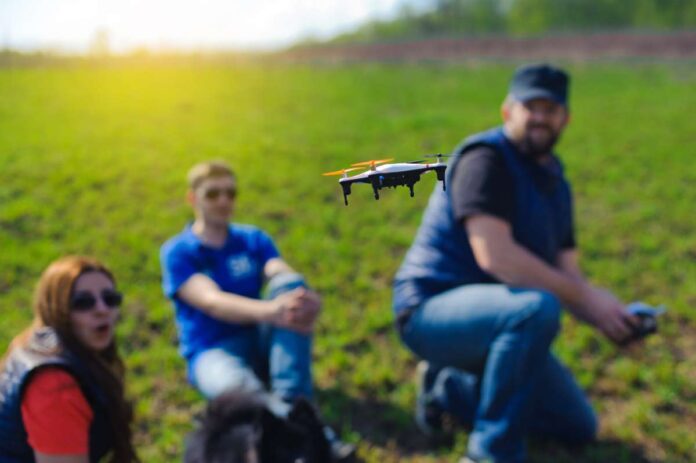Could the FAA be manipulating the rule making process to strip American’s of their constitutional rights?
In 2015, the Federal Aviation Administration (FAA) created a new rule to require all recreational drone operators in America to register their drones with the government, pay a $5 fee, provide their full name, physical address, mailing address, email addresses; and make all drones display a unique identification number on the fuselage of the model aircraft.
The recreational drone registration requirement was mandated by the FAA a few days before Christmas, 2015, after thousands of drones had already been purchased and placed under the Christmas tree. It was a harsh reminder to children all across the country, and to their parents, of the long reach of the federal government.

The agency raised over $3 million from fees, and ultimately discouraged many people from becoming recreational drone hobbyists, which was probably the intention of the FAA.
The new FAA rule required drone owners to register themselves, and their drones, or face severe civil and criminal consequences. The penalty for not registering a drone was up to three years in prison, civil penalties of up to $27,000, criminal fines up to $250,000, and a felony conviction. The FAA even authorized law enforcement to use deadly force, if needed, to enforce new drone rules.

Some drone pilots tried to fight the overly restrictive rules and pointed to the FAA Modernization and Reform Act, which Congress passes in 2012. It included a clause in Section 336 of the Act, called the “Special Rule for Model Aircraft,” dictating that the FAA “may not promulgate any new rule or regulation regarding a model aircraft.” A drone is considered to be a “model aircraft” if it is under 55 pounds.
The FAA was, thereby, stripped from their authority to regulate recreational drones, also known as “model aircraft,” as of 2012 – but that did not stop them from creating and enforcing new drone laws.
in September and December of 2015 the FAA issued two new laws that caused widespread alarm within the drone community. The FAA in September, restricted drone usage in the airspace around Washington D.C. and also limited their use, in general, in controlled airspace around the country. And in December 2015, in complete contradiction to the FAA Modernization and Reform Act, the FAA initiated the recreational registration requirement and imposed harsh penalties for non-compliance.
Washington D.C. based drone hobbyist John Taylor sued the federal government to overturn the drone registration requirement – and he won. On May 19, 2017, the D.C. Circuit Court of Appeals struck down the FAA’s registration rule for recreational drone users.
In his ruling, Judge Kavanaugh stated, “Petitioner JohnTaylor is a model aircraft hobbyist who is now required to register with the FAA. He has operated model aircraft from his home in the Washington, D.C., area, and he wants to continue to do so without registering or complying with the new flight restrictions. Taylor filed petitions in this Court to challenge the FAA’s Registration Rule and the Advisory Circular. To begin, Taylor does not think that the FAA had the statutory authority to issue the Registration Rule and require him to register. Taylor is right.”
Circuit Judge Kavanaugh also wrote in his ruling, “The Registration Rule does not merely announce an intent to enforce a pre-existing statutory requirement. The Registration Rule is a rule that creates a new regulatory regime for model aircraft. The new regulatory regime includes a “new registration process” for online registration of model aircraft. The new regulatory regime imposes new requirements – to register, to pay fees, to provide information, and to display identification – on people who previously had no obligation to engage with the FAA. And the new regulatory regime imposes new penalties – civil and criminal, including prison time – on model aircraft owners who do not comply. In short, the Registration Rule is a rule regarding model aircraft.” The judge ruled, “Statutory construction doesn’t get much simpler. The Registration Rule is unlawful as applied to model aircraft. The FAA’s 2015 Registration Rule, which applies to model aircraft, directly violates that clear statutory prohibition. We therefore grant Taylor’s petition and vacate the Registration Rule.”
Based on the judges ruling (http://bit.ly/2qz7bUo), on May 19th, 2017 the FAA was ordered to rescind their national drone registration rule – so as of May, recreationally used drones are no longer required to be registered with the FAA.
Drone hobbyist John Taylor also sued the FAA over the implementation of a restrictive flight zone around Washington, D.C., where he flew his drone. On September 2nd, 2015 the FAA published Advisory Circular 91-57A, announcing that model aircraft would be subject to certain flight restrictions in the Washington, D.C. area. In his lawsuit, Taylor cited the same 2012 FAA Modernization and Reform Act that prohibits the FAA from making new model aircraft laws. Surprisingly, the judge ruled against Taylor in this case – not because he was wrong about the illegality of the FAA’s new law, but because the 2 month statute of limitations had already run out.
The Court dismissed the challenge to the Advisory Circular on procedural grounds, finding that the Plaintiff missed the 60-day deadline for challenging the Advisory Circular. Taylor filed his lawsuit four months past the date of issuance of the new law, so his case as dismissed for being “untimely.”
What these recent court rulings reveal is that the the FAA is making rules that they do not have the legal authority to make, but If nobody sues the government within 60 days of the issuance of a new law, then it stays in effect, regardless of the legality of it – and all America’s lose their ability to challenge these illegal laws later.
That doesn’t seem very Democratic.
UPDATE – Although John Taylor won his lawsuit challenging the FAA’s authority to require drone operators to register their planes, Congress passed the National Defense Authorization Act of 2017 which reestablished the requirement to register drones. The Act states, “(d) Restoration Of Rules For Registration And Marking Of Unmanned Aircraft.—The rules adopted by the Administrator of the Federal Aviation Administration in the matter of registration and marking requirements for small unmanned aircraft (FAA-2015-7396; published on December 16, 2015) that were vacated by the United States Court of Appeals for the District of Columbia Circuit in Taylor v. Huerta (No. 15-1495; decided on May 19, 2017) shall be restored to effect on the date of enactment of this Act.”
